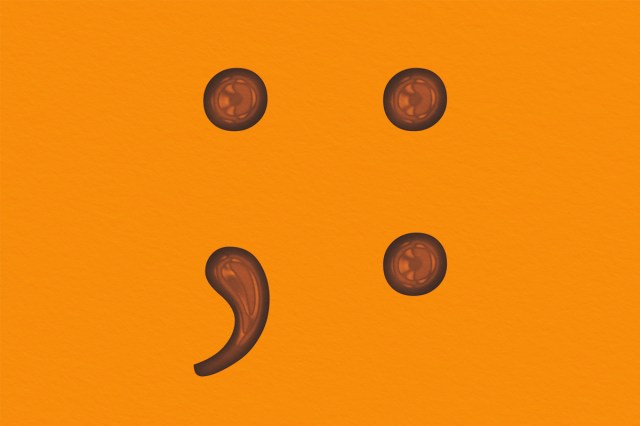
Colons (:) and semicolons (;) may look similar, and even live on the same key on your keyboard, but how they are used can be quite different. Both can help clarify information, and both represent a pause in the sentence; however, different punctuation needs call for each of them at different times. If we could narrow it down to a single key difference: A colon introduces information; a semicolon separates information.
You can use a colon in the following ways:
- When starting a list (as we did here).
- When distinguishing a word or clause from the rest of the sentence: like this.
- When titling a book or movie, as in Jaws 4: The Revenge.
- When introducing a quote, such as when Mark Twain said: “The unspoken word is capital.”
The colon is also used for nongrammatical purposes in several contexts: times (8:15 p.m.), ratios (1:3), bibliographies (Publisher’s City: Publisher), and Bible verses (1 Corinthians 13:4), to name a few.
The semicolon is primarily used to join two connected complete sentences. It replaces a conjunction (such as “but” or “and”) and is most appropriate when the thoughts in the sentences are connected. For example, “I had a late breakfast today; I probably won’t eat lunch.” The semicolon is not needed if there are not two complete sentences. “I had a late breakfast today; about 10 a.m.” is incorrect, and the semicolon should be a comma instead.
A less common use of the semicolon is when there’s a complicated list that has commas within the items. Using a semicolon between the items in such a series helps to clear things up. For example: “I visited Pittsburgh, Pennsylvania; Knoxville, Tennessee; and Lawrence, Kansas. I brought Dan, an architect; Susan, a teacher; and Frank, a nuclear physicist.
A final note: If the words after the colon are a complete sentence (like this) make sure to start with a capital letter. You don’t need a capital letter after a semicolon unless it’s a proper noun.















